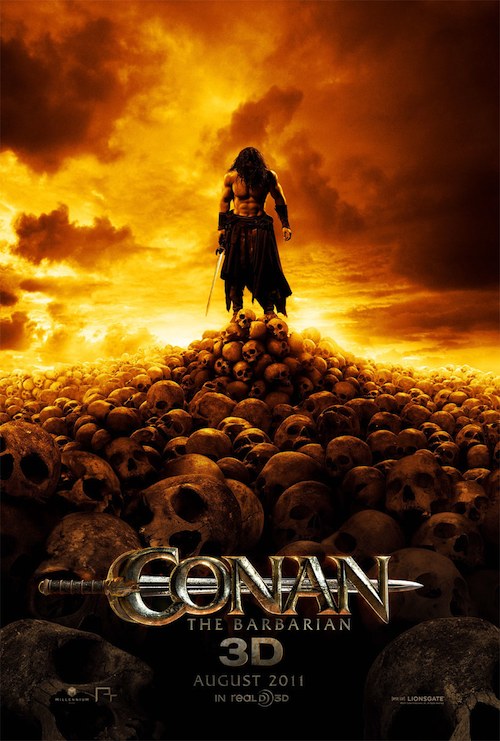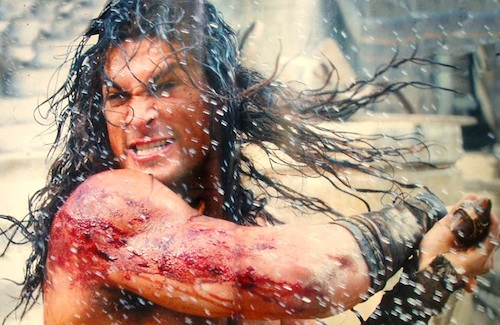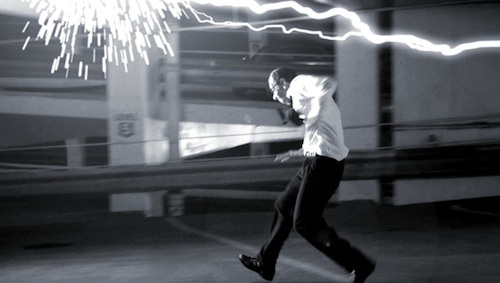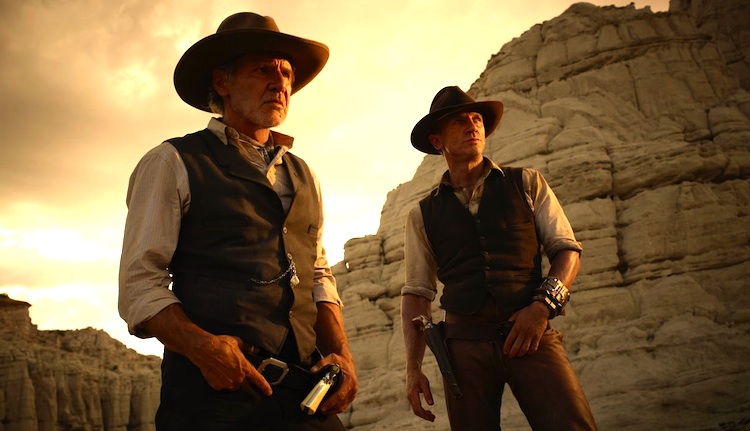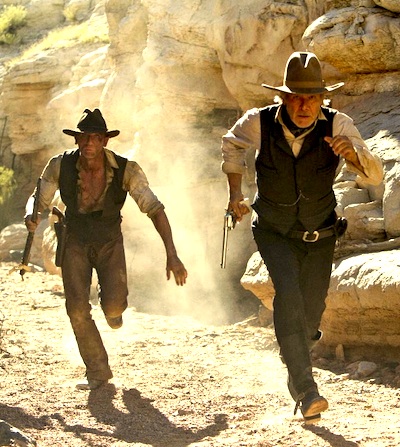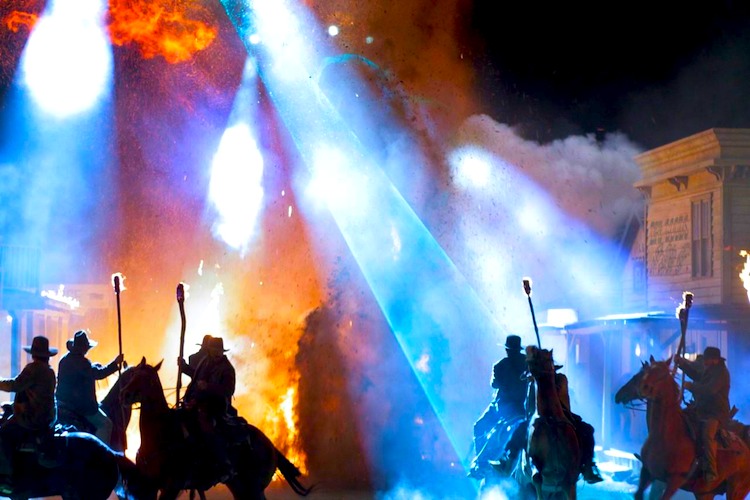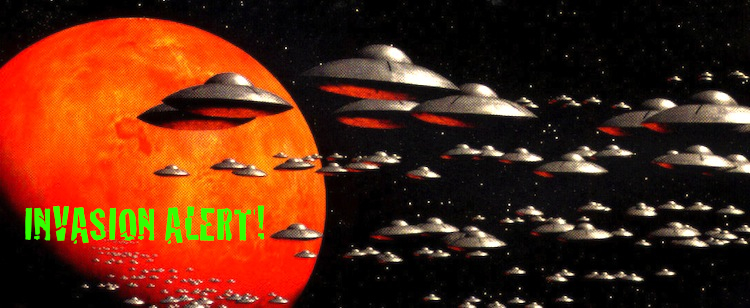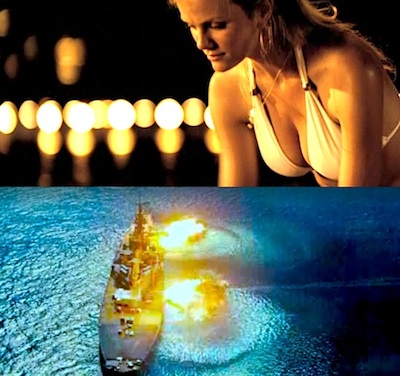By Jason Apuzzo. THE PITCH: Timur Bekmambetov produces a $5 million found-footage sci-fi thriller about an ‘officially’ scrubbed Apollo 18 mission that we learn was secretly launched by the Defense Department in December 1974 in search of … a mysterious presence on the Moon.
THE SKINNY: The Weinstein-distributed Apollo 18 wastes a great premise and an effective re-creation of America’s pioneering Moon landings on a listless storyline, thin characters, lame thrills, and a gratuitous cheap shot at the U.S. military that confounds the film’s own plot. NASA was wise to steer clear of this film, and so should you.
WHAT WORKS: • If you ever wanted to experience what a Moon landing might feel like from the first-person perspective of the astronauts, Apollo 18 captures that in 1970s period detail – although the film spends too much time in the claustrophobic confines of the lunar lander, and never fully stretches its legs on the Moon.
• The found-footage motif is worked nicely into the storyline, introducing (courtesy of Apple’s Final Cut Pro) a mixture of handheld Super-8mm footage and distressed analog video that gives the film visual interest and an authentic, period feel.
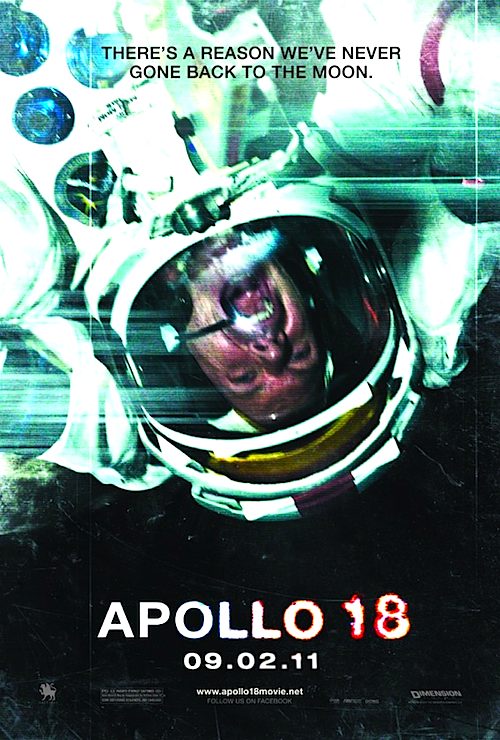 WHAT DOESN’T WORK: • Actors Lloyd Owen and Warren Christie aren’t able to capture the stoic, tight-lipped heroism of actual astronauts. Their acting performances here are much too histrionic to be believable given the circumstances of the mission and the time period.
WHAT DOESN’T WORK: • Actors Lloyd Owen and Warren Christie aren’t able to capture the stoic, tight-lipped heroism of actual astronauts. Their acting performances here are much too histrionic to be believable given the circumstances of the mission and the time period.
• ***SPOILER ALERT*** The plot hinges on the idea that the Defense Department would send U.S. astronauts to the Moon without briefing them on the basic nature of their mission, and would even leave them to die – even when rescue is possible. The film’s cynicism is ugly, and undermines the storyline’s basic believability. ***END OF SPOILERS***
• The film’s amateur attempt at ‘suspense,’ such as it is, never really achieves much of a payoff. The ‘threat’ the astronauts eventually uncover on the Moon would barely pass muster in a Roger Corman movie.
• The film lacks humor or laughs, giving it no place to go once the shock-moments wear off. As a result the movie is dull – like listening to Muzak for 90 minutes inside a 1970s photo booth.
THE BOTTOM LINE: Trying to quickly cash-in on the alien invasion and found-footage genres, Apollo 18 has the extreme misfortune of being out at the same time that a newly remastered, 3D IMAX version of Michael Bay’s Transformers: Dark of the Moon just arrived in theaters this past week. Since Apollo 18 is so utterly forgettable, and even contemptible in its cynicism toward the American military, my strong advice is to spend your money this weekend watching the first 10 minutes of Dark of the Moon, instead. Even if you only stay for those first few minutes, you’ll enjoy a much better experience than Apollo 18 can muster.
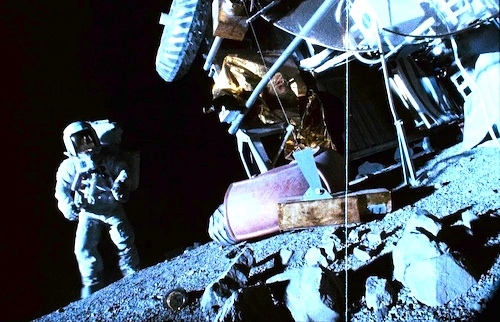
If you haven’t seen it yet this summer, Dark of the Moon (see my review here) opens with a heroic sequence that re-creates the 1969 Apollo 11 Moon landing, as astronauts Neil Armstrong and Buzz Aldrin step onto the surface of the Moon and – unbeknownst to the world – secretly explore a gigantic, mysterious (and seemingly moribund) alien spacecraft. This breathtaking opening flourish, presented in 3D IMAX, is truly one of the inspired moments in the entire Transformers trilogy, and at its conclusion when I saw the film again earlier this week actually touched off a round of applause in the audience – and I will confess to having had some watery eyes, myself.
Like other such moments in Michael Bay’s films – particularly Armageddon and Pearl Harbor – the sequence summons elegiac emotions of pride in America’s bold, pioneering spirit, our legacy of achievement in pushing the boundaries of outer space, of opening new horizons through courage and innovation. That’s what America’s efforts in outer space mean, not the junk the Weinsteins are currently peddling with Apollo 18, a film destined for the bargain bin at your local gas station – tucked somewhere between other Weinstein classics like Mimic 3 and Children of the Corn 5.
If we ever get back to the Moon, or push ahead further to Mars, it certainly won’t be because films like this are inspiring us with a sense of wonder about getting there.
Posted on September 2nd, 2011 at 6:11pm.
